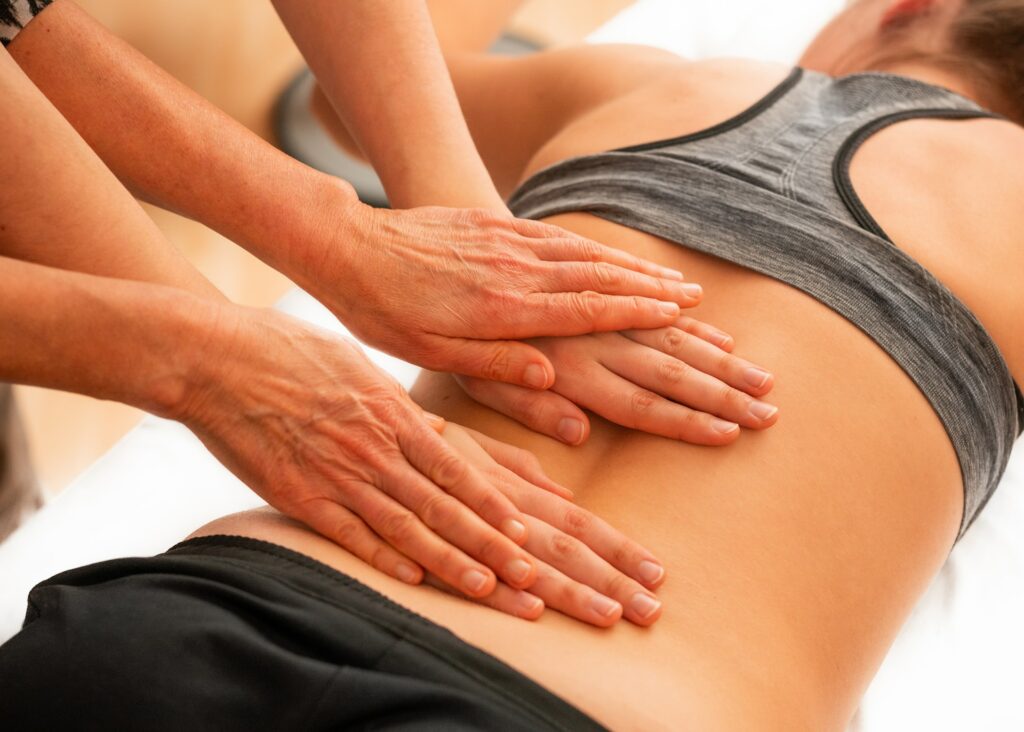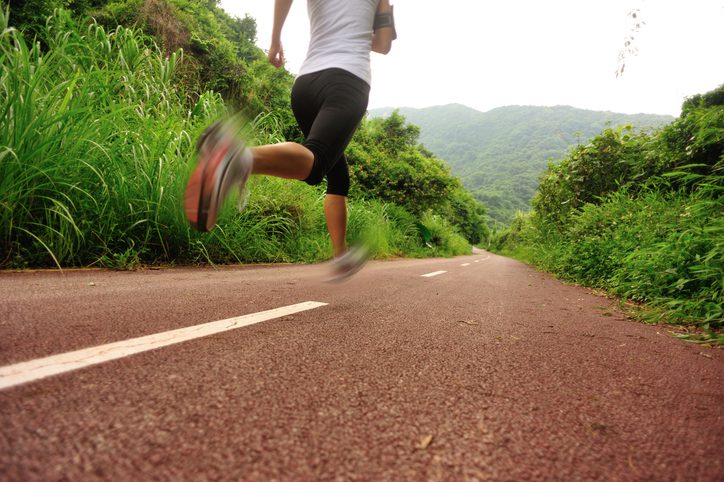One recovery tool that has gained popularity among runners is massage therapy. But do runners benefit from regular massages, and if there are benefits, are they purely well-being-oriented, or can massage improve running performance? We were curious to explore the research; here’s what we found.
Several studies have examined the effects of massage on athletes, including runners, but results have been mixed. A 2011 study from the Journal of Physical Therapy in Sport examined the effectiveness of a regular massage program on novice runners over a 10-week training period. The study measured running behaviour, muscle strength, leg pain, daily functioning and running confidence, and the results showed that both the control group and the massage group experienced similar running behaviour and pain levels, but all runners in the group that received massages completed a 10K race, compared to only 58 per cent of the control group (who did not receive massages). The study concluded that while regular massage therapy did not improve muscle strength, pain perception, daily functioning or running confidence, the higher race completion rate in the massage group suggests a potential, albeit unconfirmed, benefit to running performance for novice runners.
Another study published in 2019 in the Journal of Physiotherapy aimed to evaluate the effects of massage therapy on pain, fatigue, mood and physical performance in runners after habitual running. The results showed that the runners who received massage therapy had significantly lower pain scores than those in the control group, but there were no significant differences in fatigue, mood, flexibility, strength or jump performance between the two groups. The study concluded that massage therapy effectively reduced pain intensity in the quadriceps after running, but its impact on other measures was minimal.


Another 2004 study published in the Journal of Sports Science and Medicine determined that when runners received massage therapy on one leg after a half-marathon, they did not experience increased muscle recovery in terms of strength, swelling or soreness, but participants perceived that the massaged leg felt better upon recovery.
Based on the current research, it appears massage therapy does not translate to any measurable performance benefits, but it does seem to cause a decrease in pain perception after a run. Having less muscle pain or stiffness after a run can help runners train more consistently, which ultimately improves performance, so you could argue that massage therapy has indirect performance benefits.
As with many types of treatments, if you believe that massage therapy is benefiting you, chances are that it is. The relaxation and stress-reduction aspect can also positively impact your mental well-being, which may help you enjoy your training more.


The evidence suggests that regular massage therapy can decrease muscle pain and stiffness, but it won’t necessarily improve your performance. While personal experiences and preferences vary, massage therapy appears to be a potentially valuable recovery tool for many runners. If you’re considering massage therapy, make sure to consult with a professional massage therapist specializing in sports-related massage, to ensure the treatment is tailored to your needs.
Adblock test (Why?)
Research findings
Several studies have examined the effects of massage on athletes, including runners, but results have been mixed. A 2011 study from the Journal of Physical Therapy in Sport examined the effectiveness of a regular massage program on novice runners over a 10-week training period. The study measured running behaviour, muscle strength, leg pain, daily functioning and running confidence, and the results showed that both the control group and the massage group experienced similar running behaviour and pain levels, but all runners in the group that received massages completed a 10K race, compared to only 58 per cent of the control group (who did not receive massages). The study concluded that while regular massage therapy did not improve muscle strength, pain perception, daily functioning or running confidence, the higher race completion rate in the massage group suggests a potential, albeit unconfirmed, benefit to running performance for novice runners.
Another study published in 2019 in the Journal of Physiotherapy aimed to evaluate the effects of massage therapy on pain, fatigue, mood and physical performance in runners after habitual running. The results showed that the runners who received massage therapy had significantly lower pain scores than those in the control group, but there were no significant differences in fatigue, mood, flexibility, strength or jump performance between the two groups. The study concluded that massage therapy effectively reduced pain intensity in the quadriceps after running, but its impact on other measures was minimal.


Another 2004 study published in the Journal of Sports Science and Medicine determined that when runners received massage therapy on one leg after a half-marathon, they did not experience increased muscle recovery in terms of strength, swelling or soreness, but participants perceived that the massaged leg felt better upon recovery.
So does massage therapy really help?
Based on the current research, it appears massage therapy does not translate to any measurable performance benefits, but it does seem to cause a decrease in pain perception after a run. Having less muscle pain or stiffness after a run can help runners train more consistently, which ultimately improves performance, so you could argue that massage therapy has indirect performance benefits.
As with many types of treatments, if you believe that massage therapy is benefiting you, chances are that it is. The relaxation and stress-reduction aspect can also positively impact your mental well-being, which may help you enjoy your training more.


The bottom line
The evidence suggests that regular massage therapy can decrease muscle pain and stiffness, but it won’t necessarily improve your performance. While personal experiences and preferences vary, massage therapy appears to be a potentially valuable recovery tool for many runners. If you’re considering massage therapy, make sure to consult with a professional massage therapist specializing in sports-related massage, to ensure the treatment is tailored to your needs.
Adblock test (Why?)




































































































